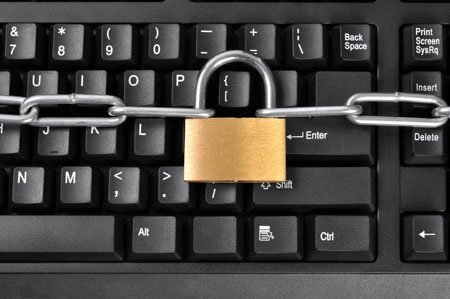How to Protect Your Computer on the Internet
The Internet is an ever present threat to your computer. Even harmlessly browsing through sites may get your computer affected with a virus or spyware without you even knowing it. As many dangers as there may be out there, you can easily protect yourself by taking a few simple steps.
Routers and Firewalls
First of all, if you don’t already have a router, it is recommended that you go and get one, even if you only have one computer in your home. A Router acts as the best kind of firewall, a hardware firewall. It protects you from all kinds of viruses and keeps your information safe. Hackers who want to gain access to your computer who may try to port scan your computer. High end routers may be able to completely block these scans or at least slow the hacker down. The majority of hackers on the Internet do not want to waste time trying to get through a router, and would rather move onto another victim.
Apart from hardware firewalls, there are also lots of software that is available for you to install free of charge. Many of the smaller companies provide just as good protection from threats as large brand names such as Norton or Sophos.
The four main types of programs that you will need to protect your computer are an active virus scanner, a firewall, a spyware scanner, and a general anti-virus program.
Virus Scanners
An active virus scanner is a virus scanner than runs in the background whenever your computer is running. These programs tend to take up very little memory because they only run quick scans of any and every file. A2 Guard or ASquared is a highly recommended program. It scans files in the background and does not compromise your CPU’s resources in doing so.
Software Firewalls
A firewall is something that prevents intrusions into your computer. There are many versions available on the Internet, so you will be able to find lots of a free firewalls to download. One highly recommended firewall is ZoneAlarm. The free firewall provides basic protection from intrusions. ZoneAlarm free does not come with an anti virus that would normally come with the retail version. Therefore you will have to install other programs with it.
Anti-Virus
A general anti virus is a program that scans for viruses and either deletes or quarantines them. A favorite among computer users is the freeware AVG. It thoroughly scans files when performing a scan and is very reliable.
Armed with these programs, you should have no trouble browsing through sites on the Internet.
Spyware Protection
Spyware is a software program that intrudes into one’s computer or network and collects and sends personal information to a third party (generally the owner of the spyware) who might have initiated the program that may be spying on your every Internet move. The information collected may include personal browsing patterns or something as sensitive as your username and various passwords. In a worst case scenario, this could mean a degree of identity theft. Unscrupulous companies sometimes make use of the stolen information to send unsolicited advertisements and other promotions either by pop ups or email and may include the passing of your Internet viewing habits to third parties for additional spamming.
Detecting Spyware
Mostly spyware is installed in ways users may not realize so it may be impossible for the consumer to notice the intrusion. The first suspicion of a possible spyware attack often begins when some of the applications begin to run more slowly or when the system locks up on a frequent basis.
Generally a spyware program is installed on a PC using one of two primary techniques. 1) The user unintentionally installs the program by clicking on a link, which actually is attached to the installation of an executable file. 2) Sometimes Spyware installation may appear as an innocuous dialog box. However, any attempt to close the box by clicking the close button will actually trigger Spyware installation. In fact, if this situation occurs, the end user is left with no choice but to restart the system. An empty window with a title bar is a variation of the dialog box trap, where the spyware gets installed when the user tries to close the window.
Additionally, adware and Spyware might be bundled with freeware programs. For example, many of the free file-sharing programs include some form of spyware which is installed when the user attempts to install the original freeware program. Many user agreements for freeware will alert you to the fact that a Spyware program is part of the download, but most users don’t take the time to read the fine print.
Once installed, spyware can transmit sensitive information as long as the user remains online. Also, once the spyware establishes itself in a PC, it is especially difficult to completely remove its effects.
Protection
Earlier, antivirus software didn’t provide protection against Spyware simply because they were not classified as either a virus or worm. Secondly, Spyware will not actually damage the PC (even though it does decrease performance) or multiply and spread through the user’s address book which is why it falls outside the general definition of a virus. However, things are changing and all major antivirus products today come with added Spyware protection. For example, the new versions of Norton AntiVirus 2006 and McAfee VirusScan, can catch many of the popular adware and spyware. Exclusive anti-Spyware software is also available. But, regular updates may be the best way to ensure you are eradicating all current Spyware programs.
You can also use spyware scanners such as the free, and easy to use, Ad-Aware program.
Attack Prevention
The two easiest methods of preventing unwanted Spyware is to avoid clicking unwanted links and then thinking twice before beginning freeware installation. If you enjoy the benefits of freeware, make sure it is safe or free from any hidden danger by reading all of the user agreements. Most Spyware programs use popups to scam the end use so it makes sense to install a popup blocker to prevent those unwanted popups. If you see a suspicious looking popup consider rebooting your PC instead of clicking anywhere within the popup. Adjusting the browser settings and installing a firewall can also stop unwanted intrusion to a large degree.


Comments - No Responses to “How to Protect Your Computer on the Internet”
Sorry but comments are closed at this time.